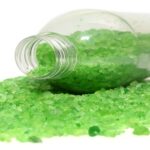Sodium hydroxide (NaOH), commonly known as lye or caustic soda, is a powerful alkaline compound widely used across various industries. Its versatility and strong chemical properties make it indispensable in numerous industrial applications. Whether it’s for chemical manufacturing, water treatment, or soap production, sodium hydroxide plays a critical role in enhancing product quality and driving process efficiency. In this blog, we will explore the top industrial applications of sodium hydroxide and its significance in multiple sectors.
Order a sample PDF of the Sodium Hydroxide (Lye) Market Intelligence Study, published by Vantage Market Research.
Chemical Manufacturing
One of the primary industrial applications of sodium hydroxide is in chemical manufacturing. It is an essential ingredient in producing a wide range of chemicals such as chlorine, sodium carbonate, and sodium bicarbonate. Sodium hydroxide is particularly important in the chlor-alkali process, where it reacts with chlorine gas to produce chlorine, sodium hydroxide, and hydrogen. This reaction forms the backbone of the production of various chemicals that are crucial to many industries, including plastics, pharmaceuticals, and agriculture. The continuous growth of the chemical sector ensures that the demand for sodium hydroxide remains high, driving its widespread use across different chemical production processes.
Key Applications in Chemical Manufacturing:
- Production of chlorine and caustic soda
- Synthesis of sodium carbonate and sodium bicarbonate
- Creation of various intermediates used in plastics, agriculture, and other industries
Water Treatment
Water treatment is another key industrial application of sodium hydroxide. Sodium hydroxide plays a vital role in both municipal and industrial water treatment plants. It is used to neutralize acids, regulate pH levels, and remove harmful impurities from water. Sodium hydroxide is especially effective in removing heavy metals and other contaminants, making water safe for consumption or industrial use.
In addition to potable water treatment, sodium hydroxide is also essential in wastewater treatment. It ensures that wastewater meets environmental standards before being released back into natural water bodies. With the growing demand for clean water globally, particularly in rapidly urbanizing areas, the role of sodium hydroxide in water treatment continues to expand.
Key Applications in Water Treatment:
- Neutralizing acidic water
- Adjusting pH levels in drinking water
- Removing heavy metals and impurities from wastewater
Soap and Detergent Manufacturing
Sodium hydroxide is a cornerstone ingredient in the soap and detergent manufacturing industry. Through a process called saponification, sodium hydroxide reacts with fats and oils to produce soap and glycerin. This reaction is fundamental to producing solid and liquid soaps used for household cleaning and personal care.
With the rising global demand for hygiene products, particularly in developing countries, sodium hydroxide’s role in soap production continues to grow. The soap and detergent industry also relies on sodium hydroxide for the production of industrial cleaning agents used in various sectors, including food processing, healthcare, and hospitality.
Key Applications in Soap and Detergent Manufacturing:
- Saponification process for soap production
- Production of household and industrial detergents
- Personal care and hygiene products
Pulp and Paper Industry
The pulp and paper industry is another major consumer of sodium hydroxide. Sodium hydroxide is used in the chemical pulping process, where it helps break down lignin in wood, allowing the extraction of cellulose fibers. These fibers are crucial for producing paper, cardboard, and other paper products.
As global demand for paper products continues to rise, especially in the packaging sector, the demand for sodium hydroxide in the pulp and paper industry is expected to increase. The paper industry also uses sodium hydroxide in the recycling of paper to improve the quality of recycled products.
Key Applications in the Pulp and Paper Industry:
- Chemical pulping of wood
- Cellulose fiber extraction for paper production
- Paper recycling and quality improvement
Petroleum Refining
Sodium hydroxide plays an important role in petroleum refining. In this sector, it is used to remove sulfur compounds and other impurities from crude oil. This refining process ensures that gasoline, diesel, and other petroleum products meet required specifications for use.
In addition, sodium hydroxide is involved in producing biodiesel. It acts as a catalyst in the transesterification process, where vegetable oils or animal fats are converted into biodiesel. With the rising demand for renewable energy sources, particularly biodiesel, the oil and gas industry’s reliance on sodium hydroxide continues to grow.
Key Applications in Petroleum Refining:
- Removing sulfur compounds from crude oil
- Refining petroleum products like gasoline and diesel
- Biodiesel production from vegetable oils and animal fats
Food Processing
In the food processing industry, sodium hydroxide is used for a variety of purposes, from food preservation to enhancing the processing of specific food items. Sodium hydroxide is commonly used in the production of foods like olives, pretzels, and processed fruits and vegetables.
It is also utilized for pH adjustments in food and beverage products, ensuring the safety and consistency of these products. Sodium hydroxide’s role in food processing ensures that products are safe for consumption and meet high-quality standards.
Key Applications in Food Processing:
- Olive and pretzel processing
- Food preservation
- pH adjustments in beverages and processed foods
Textile Industry
The textile industry is another significant sector that uses sodium hydroxide. In this industry, sodium hydroxide is used in the scouring process, where it cleans raw cotton and removes impurities from fabrics. It is also utilized in dyeing and finishing processes to ensure that textiles retain their color and quality.
With the global textile industry continuing to expand, particularly in emerging markets, the demand for sodium hydroxide in textile manufacturing is expected to increase. The compound’s ability to clean, bleach, and dye fabrics effectively makes it essential in the production of high-quality textiles.
Key Applications in the Textile Industry:
- Scouring raw cotton and fabrics
- Dyeing and finishing textiles
- Improving fabric quality and color retention
Pharmaceuticals
Sodium hydroxide is widely used in the pharmaceutical industry to manufacture various medicines. It is essential for adjusting the pH of solutions, ensuring the stability and effectiveness of pharmaceutical products. Sodium hydroxide is also involved in producing intravenous solutions, oral medications, and certain drug formulations.
As the global pharmaceutical industry expands, driven by an aging population and growing healthcare needs, the demand for sodium hydroxide in drug manufacturing is expected to rise. Sodium hydroxide ensures that pharmaceutical products meet stringent quality standards and are safe for consumption.
Key Applications in Pharmaceuticals:
- pH adjustments in pharmaceutical formulations
- Production of intravenous solutions and oral medications
- Ensuring the stability of drug products
Gather more insights about the market drivers, restrains and growth of the Global Sodium Hydroxide (Lye) Industry
Conclusion
Sodium hydroxide (lye) is an essential chemical with a wide range of applications across various industries. From chemical manufacturing and water treatment to soap production and petroleum refining, its versatility makes it a critical component in numerous industrial processes. As industries continue to grow and evolve, the demand for sodium hydroxide will only increase, driven by the need for more efficient and sustainable production processes.
With emerging trends such as sustainability in production and increasing demand in developing markets, sodium hydroxide will continue to be a key player in global industrial development. Understanding its many industrial applications and the role it plays in modern processes can help businesses across sectors optimize their operations and ensure product quality.
For a deeper dive into the sodium hydroxide (lye) market, its growth projections, key players, and regional insights, check out the comprehensive Sodium Hydroxide (Lye) Market report published by Vantage Market Research.
![[Market Research Reports] – Research Google News Blog | VMR.Biz](https://www.vmr.biz/wp-content/uploads/2022/12/logo-removebg-preview.png)











